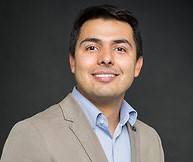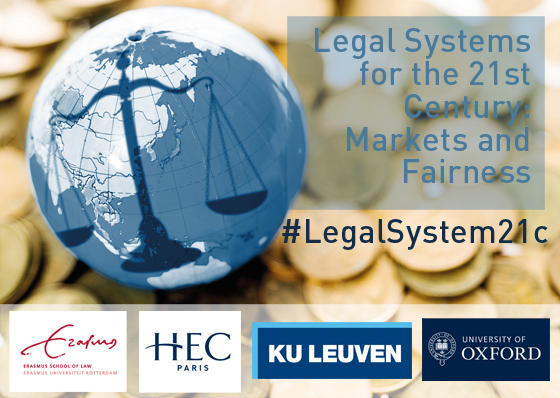#Law: Four Questions for David Restrepo
The HEC Alumni Law & Business Club organized an April 27 seminar entitled “Legal Systems for the 21st Century”. The five-hour exchange sought to unravel some of the strengths and weaknesses of mechanisms regulating corporate behavior. Co-organizer David Restrepo Amariles, Professor of Law at HEC Paris, shares his thoughts on the challenges faced by our century’s legal systems.

Q: What motivated this event?
David Restrepo (DR): We’ve noted a lack of communication between several communities and stakeholders in the field of business regulation and dispute resolution, especially between academics, policy-makers and industry. Decisions of legal reforms, and legal practice in generally, are not always informed by evidence and scientific research. Our keynote speaker today, Oxford Professor Christopher Hodges, is a globally-recognized scholar in this field. His insights may seem provocative but they are deep. A number of his publications are central to the debate. They underline the need to go beyond the anecdotal evidence and incorporate communities and empirical evidence so as to rethink in a more systemic way the legal system beyond the state. Clearly, there are too many challenges our legal systems are facing and they are not coping well with these challenges.
Using Legal Procedure to Put Fairness Center Stage
Q: Professor Hodges is convinced that deterrence has had a negative impact. He insisted repeatedly on the need for “fairness” to be incorporated by regulators. Your response?
DR: I totally agree. Deterrence and classic command-and-control views of the law do not lead to fairness. We should also look more at “procedural” fairness, which shows that individuals feel they are treated more fairly when they take part in consultation and decision-making processes. This dimension of law needs to be further emphasized today. We have new tools available such as those offered by smart law and civil tech to ensure wider and more inclusive participation of citizens. The question we’ve asked during our seminar centers on consultation in the law-making processes which is not entirely successful with its traditional top-down regulatory mechanisms. The idea of introducing fairness as a central concept does not mean we are getting rid of procedural fairness, but we’re putting fairness at the center and thinking in the legal procedures to achieve it.
At HEC Paris, we’ve developed this concept further through the idea of global law. We’ve studied corporate regulations supported by techniques of co-regulation, and not only by self-regulation or command-and-control. Co-regulation requires a lot of investment from the state, people, businesses and associations. But technically it can have a triggering and supportive role in improving communications and democratic processes. This leads to less conflictual situations and is fairer for the stakeholders. That’s because it can broaden the scope of participants that can intervene in regulation of business behavior. And that’s the concern we all share.
Q: How do you hope to prolong the debate initiated by today’s seminar?
DR: One of the participants in this afternoon’s discussion was from the OECD (ed., the Policy and Economic Adviser Lorenzo Casullo). This institution has a strong influence on the regulations and government policy of all its Member-States by providing policy recommendations. The next step is to contribute and engage further with the future recommendations the OECD will issue in this and in similar fields. Our main interest as law scholars is to help connect the dots, and bridge academic research with policy-making. I am already working on a policy project with fellow HEC Professor Alberto Alemanno through which we aim to share our insights on the challenges new technology raises to state regulation. We are also exploring how new technologies can empower citizens, business and other stakeholders to participate more effectively in legal and regulatory processes.
We are also involving students in future projects. There are two collaborating with us on the OECD project, and one who is interested in joining the organization on a permanent basis after finishing his studies.
Q: And beyond the OECD?
DR: We would like to address more than recommendations to policy-makers. There are also new ways corporations can relate to policy-makers and regulators. Corporations should also be exploring ways to transform their cultures and organizations to meet the revolutions within the legal systems of the 21st century. That means appointing or creating new positions to communicate regularly with the regulators and the monitors. This post would be designed for communication both within the company and outside its walls. There should be regular contact with regulatory prosecutors to ensure the smooth functioning of the company and compliance. At the moment, there are almost no bridges between the two which leads to sanctions. We say let’s get together both structurally and procedurally.
